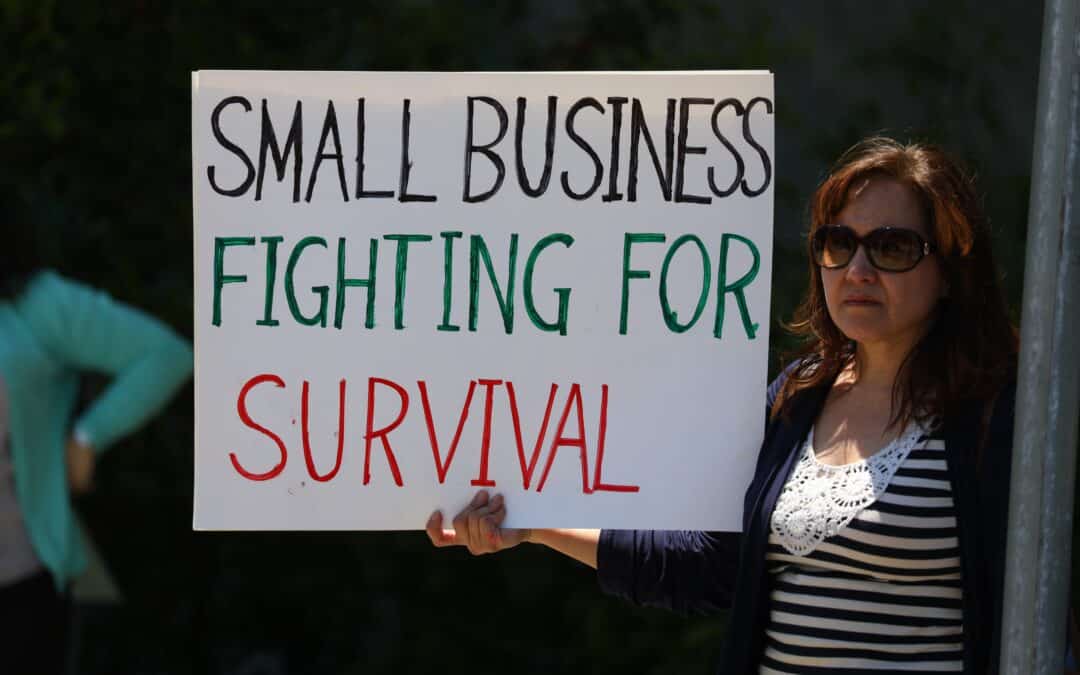“My company has never been hit this hard since its inception, as you can see. I think about it every day, ever since prices went up. It’s suddenly half of my company’s expenses and we’re trying to squeeze profits but it still can’t maintain the previous customer volume and turnover.” A customer walked into our company and told with a sad face.
This is the seventh self-employed person who has approached us since March to try and find a solution to this financial crisis.
In fact, self-employed workers face not only unpredictable income, but also other additional expenses that they pay for the company themselves, compared to office workers with a fixed monthly salary.
Perhaps the previous economic environment has not made more self-employed people realize how important it is to properly plan the company’s finances.
This is why they are facing a crisis.
We found answers on the internet and provided support to those in need based on our experience.
Separate the common from the private
Financial bills may not be easy to sort out.
To separate work and personal finances, you can set up a business bank account to manage income and work expenses.
This makes life a lot easier when it comes to self-assessment.
At least every expense on your living bill will not affect your assessment of your bill for the month.
Set prestore
Developing a prestore habit can not only be used as emergency spending, but also ensures that you have enough money set aside each month.
This makes it easier for you to pay your taxes when they are due.
Most business bank accounts now offer budget and expense apps to help you keep your deposit amount at a steady level.
Emergency fund
Self-employment income can be more unpredictable than a fixed monthly salary, so setting up an emergency fund is recommended to reduce stress during calmer months.
This can make up for unexpected costs or quieter periods, even if you built a solid customer base before you left.
Especially in special times, it is under financial pressure from various aspects.
An emergency fund can help your business mitigate the impact of the larger environment.

Loan
Whether your business is new or has been going on for a while, if you need to make a lot of purchases for your business, a self-employment loan may be the right solution for you.
Interest paid on a business loan is a deductible income expense, provided the loan is used “entirely and exclusively” for a business purpose.
Retirement plan
Even if your company and industry are perfect, at some point you’ll want to stop and enjoy the life you’ve built for yourself.
For a variety of reasons, building an individual pension early and contributing to it consistently is key to reducing financial stress in later life.
Superannuation will provide you with sustainable income security in old age.
Insurance
Benefits like critical illness and life insurance are easy to overlook and forget.
However, insurance is critical when you are alone.
If you need to stop working due to unforeseen circumstances, you should also consider items such as liability insurance for business operations, and health insurance for critical illnesses.
Build your business rationally
Once you’ve decided to start self-employment, it’s time to think about how to structure your business for tax purposes.
When you work for yourself, HMRC classifies you as self-employed.
There will be some differences in different situations.
- Being self-employed (or a business partnership if you share responsibilities with a partner) means you may pay more tax than setting up your own limited company.
In addition, you will also need to pay National Insurance contributions.
- Incorporation (forming a limited company) means that you also separate yourself and your business into a legal entity, and when you are self-employed, you have more protection for your personal assets if you experience financial difficulties.
Both of the above structures have their pros and cons, so it’s worth discussing with an accountant or financial advisor what’s best for your situation and business.
Whichever you choose, it’s important to note that both self-employed and limited companies need to register for VAT if their turnover exceeds £85,000.



